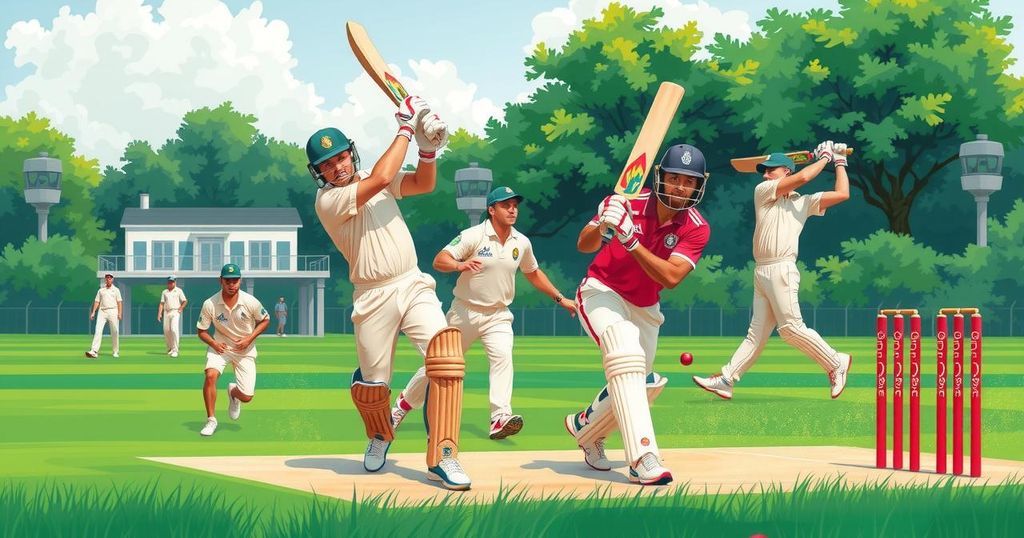The Warriors cricket team lost five points due to a breach of Cricket South Africa’s transformation regulations during a match against the Dolphins, affecting their playoff qualification. The decision raises questions about the dual scorecard system that prioritizes racial representation over traditional performance metrics. The complexities stemming from this system highlight ongoing challenges regarding racial equity in South African cricket.
The Warriors cricket team has been penalized five points after their victory against the Dolphins in the One-Day Cup match held at Kingsmead on February 16. Four of these points were transferred to their opponents, resulting in the Warriors losing their spot in the playoff qualifier scheduled for Wednesday, which will now feature the Dolphins and the Titans, while the winners will compete in the finals against Boland.
This decision raises questions regarding the fairness of a system that allows a team to lose points despite performing well on the field due to administrative regulations based on player demographics. Essentially, Cricket South Africa operates with a dual scorecard system: one focuses on traditional performance metrics, while the other tracks adherence to transformation targets that stipulate racial quotas for players on the field.
The primary concern arises from the Warriors fielding only two black players instead of the required three during the match. Crucially, they did not obtain permission from Cricket South Africa to deviate from this requirement due to player injuries, leading to the enforcement of the penalty. The announcement of this sanction came almost three weeks after the match, highlighting the slow bureaucratic response.
The rationale behind these rules is rooted in South Africa’s historical context, where racial disparities have significantly affected sports and other societal elements since the introduction of apartheid. While the intent is to promote equality and representation in cricket, the implementation sometimes poses contradictions, such as the ambiguity surrounding the term “target requirement,” which lacks clarity in its obligatory nature.
Furthermore, the complexity deepens considering the geographic advantages of the Warriors, who are situated in an area with abundant black talent. The coaching leadership of Robin Peterson, a mixed-race individual, further complicates the situation, illustrating the nuanced realities of identity and representation in modern South African cricket.
Despite significant progress since the end of apartheid, systemic issues persist, evident in the ongoing calls for equitable representation of all racial groups in cricket, particularly black players as well as those of mixed heritage. The conversation around transformation in cricket remains contentious and highlights the sensitive balancing act between addressing historical inequalities and ensuring fair treatment for all players in a post-apartheid society.
These penalties and the discourse they provoke indicate that while South Africa has made strides towards equality, considerable challenges remain in terms of social identity and sports representation, leading to continued dialogue about the need for transformations in the cricketing framework and beyond.
In conclusion, the Warriors’ penalty reflects ongoing tensions in South African cricket regarding racial representation and transformation targets. The dual scorecard system employed by Cricket South Africa creates complexities that impact both players and teams in ways that challenge traditional sports performance evaluations. The narrative surrounding this situation underscores the critical need for constructive dialogue and policy adjustments to foster a truly equitable sports environment. There exists a delicate balance between rectifying past injustices and ensuring all current players are treated fairly regardless of racial identity, necessitating ongoing efforts towards achieving this goal across South African cricket and society as a whole.
Original Source: www.cricbuzz.com






